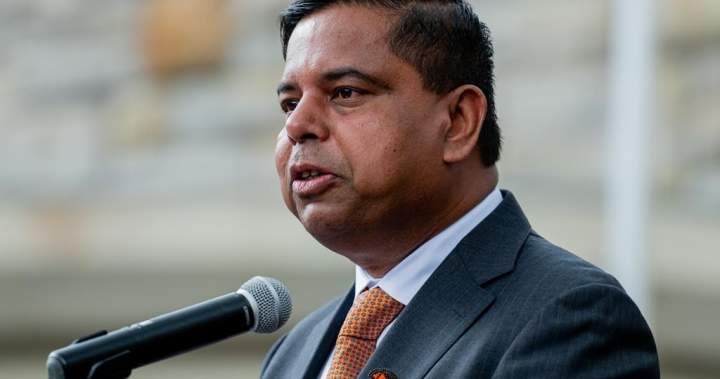In a development raising questions about diplomatic protocol and terrorism policies, Public Safety Minister Gary Anandasangaree has defended his decision to sign letters addressing the Liberation Tigers of Tamil Eelam (LTTE) as a legitimate organization, despite Canada’s official designation of the group as a terrorist entity.
The controversial correspondence, which emerged during a parliamentary committee meeting Thursday, showed Anandasangaree using letterhead from his constituency office to address Tamil community members who openly referred to the LTTE as a liberation movement rather than a terrorist organization as defined under Canadian law.
“Correspondence from constituents is responded to as a matter of routine operations,” Anandasangaree stated when confronted by Conservative MP Garnett Genuis during the public safety committee meeting. “The letters in question were processed as part of standard constituency procedures.”
The LTTE, commonly known as the Tamil Tigers, has been listed as a terrorist organization in Canada since 2006, a designation that followed years of armed conflict in Sri Lanka where the group employed suicide bombings and political assassinations in their separatist campaign. The group was militarily defeated in 2009, though international security agencies maintain that sympathizer networks remain active.
While serving as MP for Scarborough-Rouge Park, Anandasangaree has maintained strong connections with the Tamil community, which forms a significant constituency in his riding. However, his explanation that the letters were merely “routine” has sparked criticism from opposition members who question whether such correspondence undermines Canada’s terrorism policies.
“We have a minister of public safety who is signing correspondence that treats a listed terrorist entity as a legitimate organization,” Genuis stated during the committee hearing. “This directly contradicts our national security framework.”
The controversy intensified when Conservative MP Michael Cooper pressed the minister on whether he believed the LTTE should remain on Canada’s terror list. Anandasangaree avoided a direct answer, stating instead that he respected the legal process for terrorist designations while emphasizing the importance of addressing “legitimate aspirations” of the Tamil community.
Security experts consulted by CO24 note that the incident highlights the complex intersection of constituency politics and national security policy, particularly when elected officials represent communities with connections to international conflicts.
“Ministers must demonstrate exceptional care in their communications to ensure they don’t undermine established security designations,” said Dr. Amarnath Amarasingam, a terrorism researcher at Queen’s University. “Even seemingly routine constituency correspondence can send problematic signals about Canada’s stance on designated terrorist entities.”
The Prime Minister’s Office has thus far declined to comment on whether Anandasangaree’s correspondence contradicts government policy or if any review of the minister’s actions is forthcoming.
This incident emerges against a backdrop of increasing global concern about terrorist financing networks and how diaspora communities may inadvertently support designated groups through cultural or political organizations that maintain ambiguous relationships with banned entities.
As this situation unfolds in Ottawa, a critical question remains: How can Canada balance respecting the political aspirations of diaspora communities while maintaining clear boundaries regarding engagement with organizations officially designated as terrorist entities under Canadian law?
























